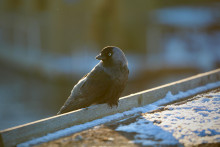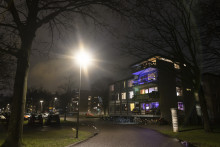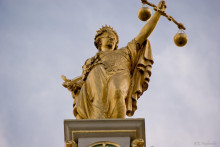Anyone who’s been on the Boulevard around sunset in recent weeks may have witnessed quite a natural spectacle. As the sky shifts from deep blue to black, the loud, rasping calls of jackdaws echo between the Bastille and the Nest buildings. The air churns with black, fluttering bodies. An estimated five to six hundred birds. Students stare open-mouthed at the eerie scene above them.
Roosting
According to De By it happens every year. ‘Jackdaws are highly social animals. Especially in autumn, they flock together before flying to a shared sleeping site. The size of the group offers protection against birds of prey. Many bird species show this behaviour and it’s called roosting. They just happen to have chosen the Sky tower as their gathering point.’
He adds that the birds then touch down together with many more groups in places such as the Cromhofpark. ‘There are lots of closely spaced trees and it’s nice and quiet.’ Other corvids, such as rooks and carrion crows, are welcome too. According to SOVON, the Dutch ornithological field research foundation, jackdaws like living in urban areas and semi-open landscapes.
The observation roughly matches the results of this year’s campus BioBlitz, when about 360 individuals were counted. It’s hard to say where the rest come from. Research from SOVON shows that groups tend to be fairly stable, although foreign groups from the north and east sometimes join in.
There’s no danger according to De By, though there may be some noise and droppings.







